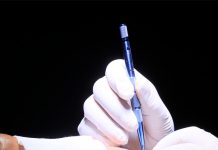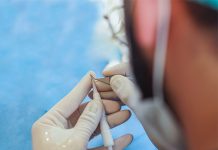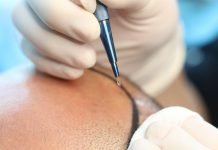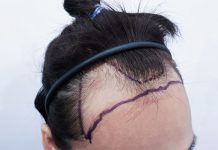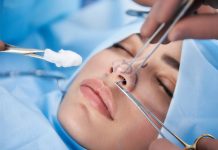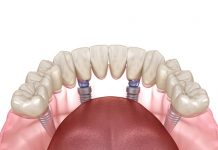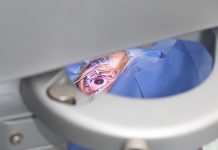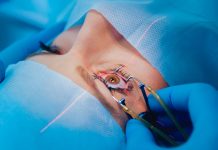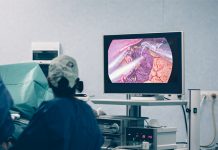PRK Laser Eye Surgery
PRK Laser Eye Surgery in Turkey its average cost, PRK Eye Surgery procedure and everything you need to know about permanent eye correction are explained.
PRK Laser Eye Surgery is going to make you free from your glasses or contact lenses in minutes. The PRK Laser technology promises to improve your vision almost permanently and without pain. Besides, PRK laser treatment is the oldest method of excimer laser treatments. PRK eye surgery cost is more affordable than other laser surgery methods and it is between £900 and £2,250. Being dependent on glasses or contact lenses is really troubling for many patients. Even though you forget that they are on your face, you still have a headache caused by your glasses from time to time. Waking up and not being able to see anything can be disappointing, too.
If you are wearing contact lenses, you have to carry a pair of them with you all the time, let alone your contact lens solution. If you do not bring them with you, planning to stay over at your friends’ spontaneously is not possible. However, there is a treatment that will make you free from your glasses, and that treatment has been performed for years. Although, new methods exist, PRK surgery is known to be cheaper than other methods. It is not the only reason it is preferred, some medical conditions might lead surgeons to choose PRK over other methods as the risks are less in number for those particular conditions.
What is PRK Laser Eye Surgery?
PRK stands for “Photorefractive Keratectomy”, which is a surgery that is performed to treat vision problems such as myopia, hyperopia, and astigmatism. PRK aims to make patients free from their eyeglasses or contact lenses by curing the vision problems mentioned. Those vision problems are the result of refractive errors in the eye that can be explained in other words as the eye cannot bend light well enough to have a clear vision. As a result, patients who suffer from those vision lack cannot see objects that are far or near, or they can have blurry vision no matter what.
PRK is the first technique of laser eye surgery so its history leads back to 1987. In 1987, Dr. Theo Seiler, a German ophthalmologist, and physicist performed the first PRK surgery, and in1989, he started the first clinical studies on PRK. Seiler contributed to other techniques of laser-assisted eye correction surgeries with his studies. Throughout the passing years, PRK surgery has been performed since its invention, and despite new methods has arrived in the eye health industry.
There are two methods of PRK at the moment. One is Alcohol assisted PRK, which is the oldest method. The last is Trans-epithelial PRK which is also known as TransPRK. Alcohol-assisted PRK is performed with an alcohol solution that helps to remove the epithelial tissue and a circular cutting tool is used. However, in TransPRK, the surgeon does not create an incision by hand nor apply alcohol. In TransPRK, directly after anesthesia, a laser device is used to both create the incision and treat the eyes.
Advantages of PRK
- PRK is the oldest method, this means that the outcomes of PRK surgery are known better than other methods.
- During PRK, you do not have a chance of getting flap regulations which happen when the surgeon puts back on the patient’s eye after the procedure.
- Long-term complications are less in PRK.
- PRK has got a high success rate.
- It is suitable for patients with a thin cornea.
Disadvantages of PRK
- PRK eye surgery has got a longer recovery period compared to other methods, it might affect your daily life.
- Vision improves slower in PRK compared to other methods of excimer laser surgeries.
- Irritation and discomfort after PRK surgery can last for weeks.
PRK vs. LASIK Eye Surgery
The difference between PRK and LASIK (laser-assisted in situ keratomileuses) is often questioned by patients who think of getting Laser surgery in near future. PRK surgery and LASIK are methods that have been performed for years. Despite their similarities, there are differences between those two methods that can be considered as advantages or disadvantages. The differences and similarities between PRK and LASIK are:
- PRK has a further history than LASIK does.
- PRK and LASIK are both techniques of eyesight improvement surgery that include the laser method. They are used to cure nearsightedness (myopia), farsightedness (hyperopia), and astigmatism.
- During PRK surgery, the cornea of the eye, which is also known as the epithelium, is completely removed from the eye while in the LASIK technique, the cornea is not completely removed but folded upwards to place it back after the laser treatment. In other words, your cornea will still remain on your eye after the LASIK surgery; however, you will be using a soft contact lens during the recovery period of PRK as your cornea is completely removed from your iris.
- After PRK eye surgery, your vision is not as good as LASIK surgery as your cornea is completely removed. However, your eye will heal in 5-7 days and you will get removed from the soft contact lenses.
- Both PRK and LASIK cause discomfort and pain during the recovery period.
- PRK has got a slower healing process. It can take up to a month for you to heal from your PRK eye laser surgery while LASIK has got a faster healing process than PRK. With LASIK, your cornea will heal within days. However, it is important to note that full recovery from LASIK can take several months.
- Despite PRK’s longer healing process, PRK surgery has to be preferred for some patients to reduce the risks of the surgery.
- In LASIK eye surgery, the patients indicate having less dry eyes compared to PRK surgery.
Who Can Get PRK Eye Surgery?
The candidate profile of PRK has a wider range compared to other methods. Patients who cannot have LASIK or other methods of excimer laser keratectomy prefer the PRK laser eye surgery method. The characteristics of people who can have PRK:
- Being over 18 years old.
- Having a stable vision at least for a year.
- Vision grade is suitable for surgery.
- Vision grade is the prescribed glasses number. To get a successful PRK Surgery, your vision for Myopia to 8.00, for Hyperopia to 4, for Astigmatism to 4. This does not mean that you cannot get a correction surgery at all. If you are not suitable for PRK surgery or any kind of excimer laser surgery, you can have Intraocular Lens Implant surgery. It is an eye correction surgery in which surgical lenses are inserted under the cornea of the patient. It is a permanent method.
- Having good eye health.
- Not having any corneal disease such as glaucoma, corneal ulcers, macular degeneration, keratoconus, diabetic retinopathy.
- Not having other medical problems that increase the risk of PRK.
- Chronic allergies, diabetes, rheumatoid arthritis, lupus, or any immune system problems.
- Not being pregnant or nursing.
- Average pupil size (6 mm).
- Having large eye pupils increase the risk of visual irritations. If you have large pupils, it might keep you from having excimer laser treatment.
- Having realistic expectations from PRK surgery.
Possible Risks and Side Effects of PRK Eye Surgery
Every surgery has got potential risks that should be considered before the surgery. Eye Laser Surgery is even a topic of horror movies and every patient thinks about those exaggerated scenes before deciding on their surgery. Laser surgeries are safe surgeries if they are performed by experienced surgeons in well-known clinics or hospitals. PRK is a surgery too; however, like every other surgery, it carries several risks. Risks of PRK eye surgery can be related to the patient, the instruments used in the surgery, or the surgeon. For that reason, we highly recommend you to have a medical check before your surgery and consult your surgeon after you make sure that there are not any conditions that might increase the risks of PRK surgery. Another significant fact is choosing an experienced surgeon. The risks and side effects of PRK eye surgery are:
- Dry eyes: After the surgery, many patients suffer from having dry eyes. It is a normal reaction to PRK surgery. It is caused by having laser treatment in your eyes that traumatizes nerves in the eye. Besides, due to having removed your cornea and getting placed a soft contact lens which will remain there for 5 to 7 days for 24 hours daily, you are going to have dry eyes. Your surgeon will prescribe medicated or lubricating eye drops that will help your eyes to keep moisturized. If you use those eye drops, you will not be bothered by having dry eyes that much. However, if you see an extreme dryness in your eyes that gives you unbearable pain, you should call your doctor or see him immediately.
- Scratchy eyes: Your eyes are going to feel scratchy and itchy after your PRK laser eye surgery. As your cornea has been removed, you will feel a disturbing feeling in your eyes. The bandage soft lenses will make your eyes even itchier due to being there for a long time. Unfortunately, you should not touch your eyes at all let alone rubbing. You can cause damage to your eyes and cause infection. The best thing you can do is to use your eye drops which will help the irritation reduced.
Your eye surgeon might give you eye shields to prevent you from touching your eyes. You can use them daily or only while you are sleeping.
- Infection: In PRK surgery, there is a higher risk of infection compared to other methods because of the removal of the epithelium. To prevent infection, the patient should use the medicine prescribed by his or her doctor regularly. Besides, hygiene has great importance during the recovery period. You should get away from dusty environments during your healing process. It is important to note that tap water, self-care or make-up products can increase the risk of infection.
- Inflammation.
- Bruises.
- Inflammation.
- Vision problems:
- Corneal Haze: After PRK laser surgery transparency of the cornea can lessen due to the laser operation. This is called corneal haze. Corneal haze causes glare at night due to bright lights. Corneal haze after PRK surgery is not permanent. It generally disappears in the following 6 weeks after PRK eye laser surgery. However, with the developed technology of excimer lasers used in keratectomy, they do not produce laser energy as much, so with the lower laser energy, the possibility of corneal haze reduced compared to the previous excimer lasers. Besides, some Ophthalmologists use Mitomycin C which helps to avoid corneal haze.
- A decrease in night vision: After your PRK surgery, your night vision will not be as good as it used to be during the healing process. In most cases, night vision improves after a while; however if it is persistent even after one or two months, you should consult your eye doctor.
- Other than corneal haze and decrease in night vision, reflection on objects, double-seeing, and halos around objects that spread light can be seen. For that reason, driving at night is not recommended.
- Being sensitive to light: Most of the patients who have excimer laser surgery experience sensitiveness to light. It is a normal side effect and it is going to reduce after the healing process. However, sensitiveness to the light will still remain to a certain degree even after the surgery. We recommend you to wear sunglasses and avoid sunlight or other kinds of strong lights after your surgery to protect your eye health.
- Surgical Complications about Vision:
- Under-correction: Under-correction is a surgical complication that might occur in excimer laser keratectomy including PRK eye surgery. Under-correction is removing less corneal tissue from the patient’s eye that results in unclear vision. In other words, the patient who had under-correction might have to wear glasses even after laser surgery as his or her vision is not fixed completely. In cases of Under-correction, after one year, the surgeon might want to re-operate PRK surgery.
- Over-correction: Overcorrection is a complication that is opposite of Under-correction. Over-correction occurs when the surgeon removes corneal tissue more than it is needed for a healthy vision. As a result, the patient cannot see clearly after the surgery. Unfortunately, fixing over-correction is harder than under-correction and it must be fixed as soon as possible. Under-correction makes the cornea less weak and can even result in blindness.
- Regression: Regression is a rare condition that can happen after excimer laser keratectomy. It is a complication that results in no change after laser treatment. The patient’s vision rate remains the same after the surgery. For example, if the patient suffers from 2.50 hyperopia, after the surgery his or her vision is still 2.50. As stated before, it is a pretty rate.
- Astigmatism: Astigmatism after excimer laser surgery or PRK can be caused when the corneal tissue is not removed evenly. As a result, additional surgery can be needed.
- Vision Loss: You might lose your vision completely and become blind as a result of PRK surgery. However, such a case has not been seen before.
How to Get Ready for PRK
- Having a general medical check: It is significant to have a medical check before your PRK surgery because some medical conditions can make the risks of PRK higher than regular. These risks can result in serious complications, even blindness. Probably you already know what your medical conditions are but still, you should make sure that you do not have any medical conditions that you are not aware of.
- Having a stable vision degree: Before having an Eye Laser Surgery or PRK, your vision should maintain the same for at least one or two years. The change in the vision can be accepted up to 0.25 depending on the patient. However, it is advised by many eye specialists that patients should wait to have surgery till their vision health is stable. For example, if you have myopia which is -2.00, and after 6 months later in your eye appointment you find out that it became -2.75. In this case, your surgeon will not recommend you to have laser eye surgery.
- Finding a hospital or clinic that performs PRK: Every surgery is important and should be done by experienced hands. Eye surgery is one of the most challenging surgeries and we advise you to prefer an experienced surgeon. It is important to choose a clinic that does not reduce expenses, that does not guarantee the results of your surgery to be 100% success, that performs eye surgery for a long time. If you cannot afford a trustworthy hospital in the UK, you can look for options in Turkey where you can have an appointment for the best eye surgeons at a lower cost than in the UK.
During your first appointment, your eye doctor will make several eye tests for your eyes. The tests you will get before your PRK laser surgery are:
- The thickness of your cornea: If your cornea is too thin, you might not be able to get PRK surgery. This can be caused by many reasons. One of the main reasons for the thin cornea is wearing contact lenses for a long period or having previous eye laser surgery. It can be caused by environmental reasons, as well. You can strengthen your cornea by several treatments. These methods are vitamin therapy, ultraviolet light therapy, and corneal collagen treatment (CXL).
- Corneal curvature: Corneal mapping tool is used
- Refraction: Refraction is a regular test that eye doctors use to check the vision of the patient. This test shows the degree of your myopia, hyperopia, or astigmatism.
- Eye pressure: Eye pressure is also known as Intraocular Pressure (IOP). The test is done to check if the patient has got pressure in his/her eyes or not. The eye pressure test is significant because it determines the risk of Glaucoma. Glaucoma is an eye disease that can be considered serious. It can end up with nerve damage in the eye due to abnormal tension which can result in blindness.
- The size of your pupils: The size of your pupils should be measured because it can be smaller or bigger and the tools that will be used might change.
- Dryness of your eyes: If your eyes are too dry or you suffer from Keratoconjunctivitis sicca (Dry eye Syndrome) you might need treatment before your PRK surgery. After your PRK surgery, your eyes will be drier because dryness is a common side effect of PRK surgery. For this reason, surgeons do not perform PRK eye surgery on patients whose eyes are already dryer than normal.
- Stop wearing contact lenses: You should stop wearing your contact lenses several weeks before your surgery as contact lenses can result in infection, dryness, or they can change the shape of the patient’s cornea. If you are planning a PRK surgery soon or later, we recommend you to reduce the time you are using contact lenses or switch them with eyeglasses if it’s possible to rest your eyes. If you want to use contacts, you should use soft lenses instead of hard contact lenses as they do not have air circulation as much as soft contact lenses.
- Quit wearing makeup before your surgery: Makeup or self-care products include a lot of chemicals. They can make eye infection possible and it would be something we do not want the day before your surgery. Despite we recommend you to minimize the usage of self-care products, you should clean your face and eyes before your PRK laser eye surgery.
During your first appointment, your doctor will describe to you what should be done before your PRK surgery. You can ask what you want to know about the surgery such as risks and complications, aftercare, etc. during this appointment.
Surgical Procedure of PRK
PRK eye surgery is performed by two methods as stated in the previous sections. Those methods are Alcohol Assisted PRK and TransPRK. The difference between the two methods is the beginning step of the surgery. In Alcohol Assisted PRK, the epithelium (cornea) is removed using alcohol, while in TransPRK, the cutting and removal of the epithelium are in a single step. During your PRK laser surgery takes 15-20 minutes for both eyes. You will not be under general anesthetics during your PRK surgery. If the patient offers, a mild sedative can be given before surgery to ease the patient’s anxiety.
1) Applying anesthesia:
The first step of your PRK surgery is applying proparacaine hydrochloride drops three times in a row that lasts approximately five minutes. It is a solution that is used as a corneal anesthesia for short operations.
2) Inserting a wire lid speculum:
After applying anesthetic drops, your surgeon will use a wire lid speculum to open your eyes. That tool will keep your eyes open during the PRK surgery. It will be removed when your PRK surgery is completed.
3) Applying alcohol on the cornea:
In this step, alcohol ( 20-30% ethyl alcohol) solution is applied to the cornea for 20-30 seconds. During this procedure surgeons mostly place the trephine (8-9 mm) ın the top of the cornea to keep the alcohol still. After applying alcohol, a wax sponge is used to clean the alcohol remaining. (This step is for only Alcohol assisted PRK. TransPRK does not include alcohol during the removal of the epithelium.)
4) Creating the incision:
With the same trephine, an incision was created on the cornea.
5) Removing the epithelium:
The epithelium is removed by using a spatula by scrubbing it off the eye.
6) Laser treatment is applied:
After removing the epithelium from the eye, excimer laser treatment is applied to the eyes. An excimer laser is used in most of the eye laser techniques. It is applied through a computer-controlled device The laser is used to shape the eye to a normal state. For example, in myopia (near-sightedness) patients have curvier cornea; in hyperopia (farsightedness), patients have flatter cornea; in Astigmatism, the cornea can have unusual flatness or curves. The excimer laser can create the curve or flatness needed to have a better vision by removing small amounts of tissue. In TransPRK, the surgery does not have the application of alcohol and creating incision steps.
The device used in TransPRK is directly performed with an excimer laser device which also creates a small incision during laser treatment. In other words, laser treatment combines other steps in one step. While laser treatment is used on the eyes, you are asked to focus on light not to move your eyes. In this step, it is normal to feel pressure on your eyes. PRK is performed in a shorter duration. Most of the patients are afraid if they blink or move their eyes in this step. They think that if they move their eyes, they can have laser treatment to remove tissues from the wrong places. However, such a thing is not possible because when the patient moves their eyes, the laser device cannot find a target and cannot fire the laser energy to the eye.
7) Applying solutions and soft contact lenses:
After applying laser treatment, the surgeon applies a solution to clean the eyes. After that, another solution is applied on top of the eye then bandage contact lenses are applied as the epithelium is removed from the eyes. The soft lenses applied will be remaining there for 5 to 7 days. The patient’s own epithelium will recover over time.
Immediately After PRK Eye Surgery
You are not going to stay for a day in the hospital. You will stay for a couple of hours if needed to check if there are any complications. Mostly, patients leave the hospital one hour later after PRK Surgery. We advise you to have someone who will accompany you after your PRK surgery because you will not have an immediate clear vision. It is better if someone escorts you and drives you home.
You will have itchy eyes and you might feel pain, irritation, or headache because of the surgery. Besides, you are going to have sensitive and dry eyes. As a result, you should use your prescribed medicine which might include antibiotics and inflammatory eye drops and painkillers (During the first month, 0.3% tobramycin, 0.1 % diclofenac eye drops; for 3 months you are going to use 0.15% hyaluronic acid drops. There will be eye drops that you are going to use regularly on a daily basis such as 0.1% dexamethasone drops.) These medications will minimize the side effects of the surgery such as swelling, infection, dryness, and pain.
After your PRK surgery, you have to visit your surgeon a couple of times. Your first visit is the day after your surgery to check if there is anything abnormal ongoing. Another visit is a few days (2-7). During that appointment, your bandage contact lenses will get removed as your epithelium is healed enough. You will have another appointment 6 weeks later to check your vision.
During Recovery of PRK
As stated before, recovery from PRK surgery is slower than the recovery from LASIK surgery because, during LASIK, the patient’s own cornea still remains in his or her eyes. Due to that slow healing, your vision will not be good in the first weeks of your surgery. This should not scare you at all because after you are close to fully recover, you will not be dependent on your glasses. After your surgery, you should be very careful as your eyes are quite sensitive because of your PRK Eye Surgery. We listed some of the most significant after-care facts:
- Ask to get see-through bandages if possible.
- Do not rub or itch your eyes.
Your eyes are going to itch and you will probably end up touching your eyes often even without noticing. You can ask for see-through bandages from your surgeon
- Protect your eyes from extreme heat, cold and direct sunlight.
- Do not forget to be careful while blow-drying your hair.
- Do not apply beauty and self-care products. It might cause damage if it gets in your eyes.
- Do not take a shower on the first day of your recovery period. You should wait for 2 days. Using tap water to wash your face might cause infection in the first week.
- Keep your house and the room you spend time cleaning (Without dust).
- Prevent exercising for two days (light exercise).
- Do not dye or perm your hair until you completely heal. They include damaging chemicals.
Long-term Results of PRK Laser Surgery
It is hard to tell how your result will be after PRK surgery because every surgery is individual and no doctor can guarantee your results. However, from the previous surgeries that have been done, surgeries get a success rate. PRK surgery’s success rate is high as a result of the surveys done with the patients who had PRK eye laser surgery. This means that as there is a higher chance of your vision will be fully improved and you will be free from your glasses or contact lenses.
After PRK Surgery (it is valid for all of the excimer laser surgeries), your eyes will be sensitive to light. You should wear sunglasses that protect your eyes. However, this is beneficial for everyone’s eye health. Even if you do not get the surgery, we recommend you to wear sunglasses Even though there are a lot of risks stated about PRK surgery, serious complications are pretty rate. PRK surgery promises patients to be free from their glasses or contact lenses; however, it does not stop them to lose their sight because of aging.
Frequently Asked Questions About PRK Laser Eye Surgery
Is the PRK technique safe?
Yes. If you chose an experienced surgeon and follow post-operation advice given by your surgeon, you will complete your PRK surgery without any serious complications. The possibility of having serious complications after or during PRK is not often.
What is the success rate of PRK surgery?
The success rate of PRK Surgery is 95% according to the FDA (Food and Drug Administration). In other words, the majority of people who had PRK eye surgery ends up having a successful surgery with improved vision.
How much does PRK surgery cost?
The cost of PRK changes depending on the experience of the eye surgeon and the hospital. Besides, the cost also changes when there are additional expenses such as accommodation, transportation, or if it is the second time the patient has got eye laser surgery. Most of the patients tend to choose PRK Surgery as the cost of PRK is lower than other methods of excimer laser surgeries. The cost of PRK surgery is not so much because you are going to have better vision and you will not spend money on glasses or contacts anymore.
Your health insurance will not cover having eye vision correction surgery. If you cannot afford to have surgery in the UK, you can consider having it in another country where the cost is lower compared to the UK. Turkey is a country people all over the world visit to have surgeries because the surgeons and hospitals are highly experienced.
Will my vision immediately improve after PRK surgery? When can I see the full results of PRK?
No. Your vision will not be clear after your surgery until you heal. Your vision will get better during the first month and it will get better and better in 3 months. You can have full results in 6 months.
Will I need glasses or contacts after my PRK Surgery? Is the result of PRK permanent?
It is possible. None of Laser Eye Surgeries guarantee 100% vision improvement after the surgery. Even though most of the patients do not need glasses at all, some patients still need glasses at night or while driving. Besides, laser surgeries cannot keep people from getting presbyopia in the future. It is a vision problem people have by the time they start aging. Presbyopia mostly starts to occur after age 40 and it mostly affects reading sight. You might have to wear reading glasses in the future. People who suffer from presbyopia mostly prefer getting monovision. Monovision is not suitable for everyone and it is not commonly preferred. Monovision is when the surgeon adapts one of the eyes nearsighted and the other farsighted.
Is PRK a painful surgery?
No. You will not feel any pain during PRK because, before your laser treatment, anesthetic drops are applied to your eyes. That will prevent you from feeling pain. After your PRK, you might have slight pain or irritation but it is not unbearable pain.
What kind of medications I will use after my PRK surgery?
You are going to use eye drops which include antibiotics and other compounds that will fasten your healing process. For detailed information about the medicine you will use, you can read the Recovery from PRK section in this article.
Can I go to work after PRK surgery?
No. You should rest at your home the first week as workplaces might not clean enough (might cause infection).
Can I use make-up or self-care products after my PRK?
No. We highly recommend not using such products during your healing process of PRK as they consume too many chemicals inside them. You might damage your eyes or cause infection. As self-care products we mean face creams, cleansing lotions, shaving lotion, shampoo, or any kind of product you use. If your job requires wearing make-up, you can do it without eye make-up.
When can I swim after my PRK surgery?
We recommend you to avoid swimming for at least one month. If possible, it should be for 2 months because your eyes are going to be really sensitive. Pools or sea-water can include damaging compounds or can cause infection in your eyes.
What are the alternatives for PRK surgery?
Alternatives to PRK surgery are the other methods of excimer laser surgeries. If you do not have a thin cornea, you can get:
- TransPRK.
- LASIK.
- LASEK.
- Excimer Laser.
However, some patients are not suitable for any of those surgeries stated below due to having high vision problems. For example, if you have myopia at -12.00, your surgeon might advise you to have Intraocular Lens Implant Surgery. In this surgery, an implant lens is attached under the cornea. If you have extreme allergies, immune system problems, and other conditions that pose a high risk for eye surgery, sadly there is not any possibility to have surgery for your vision.
Can I go blind because of PRK treatment?
Maybe yes. Unfortunately, there is a possibility that you can go blind because of any vision improvement surgery. However, there has not been a case reported which mentions a patient going blind because of PRK surgery.


